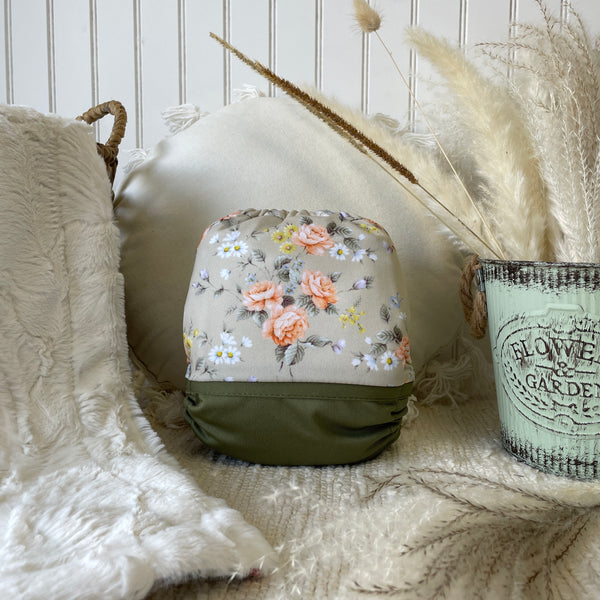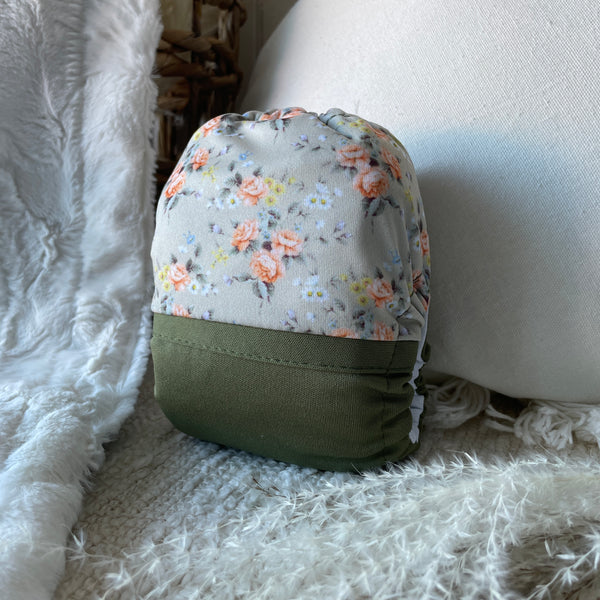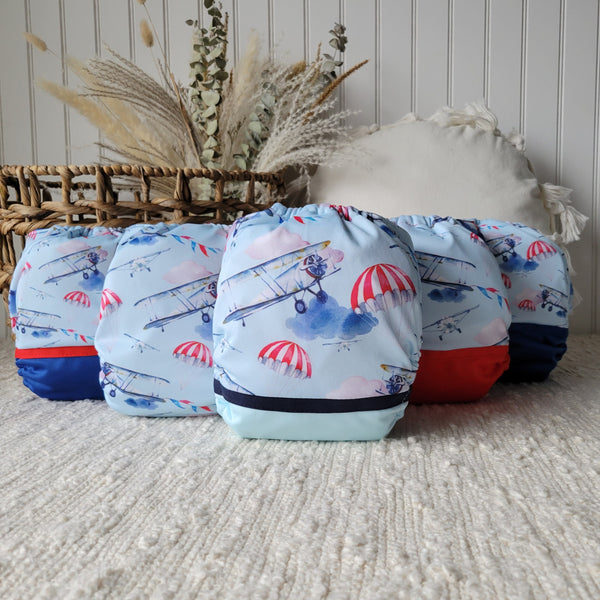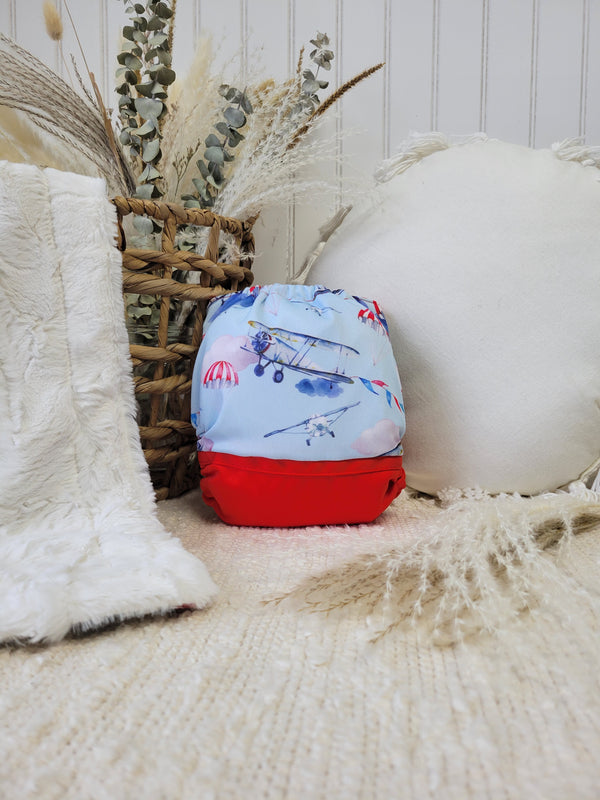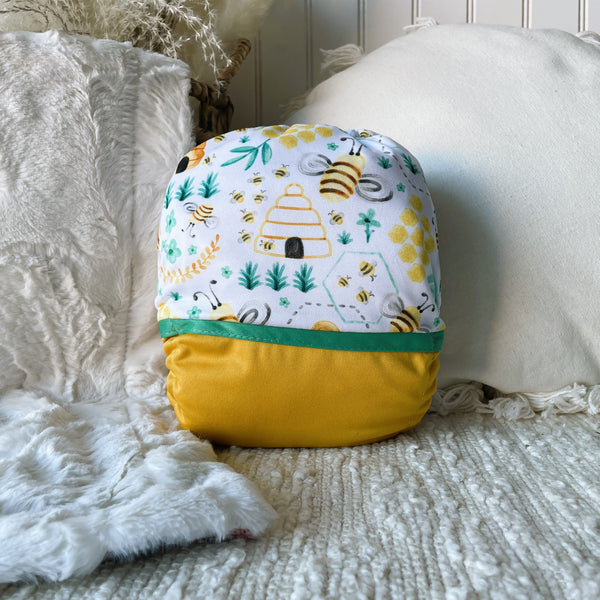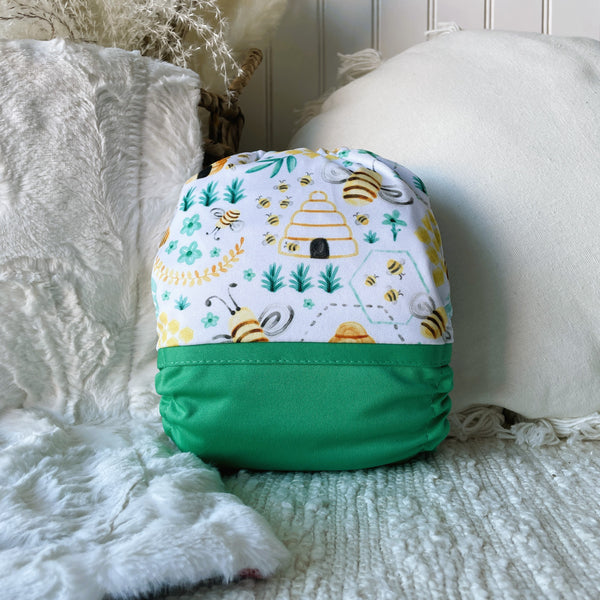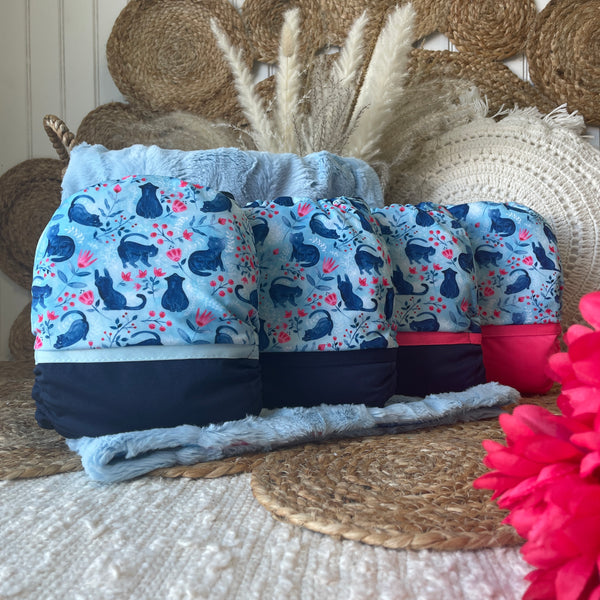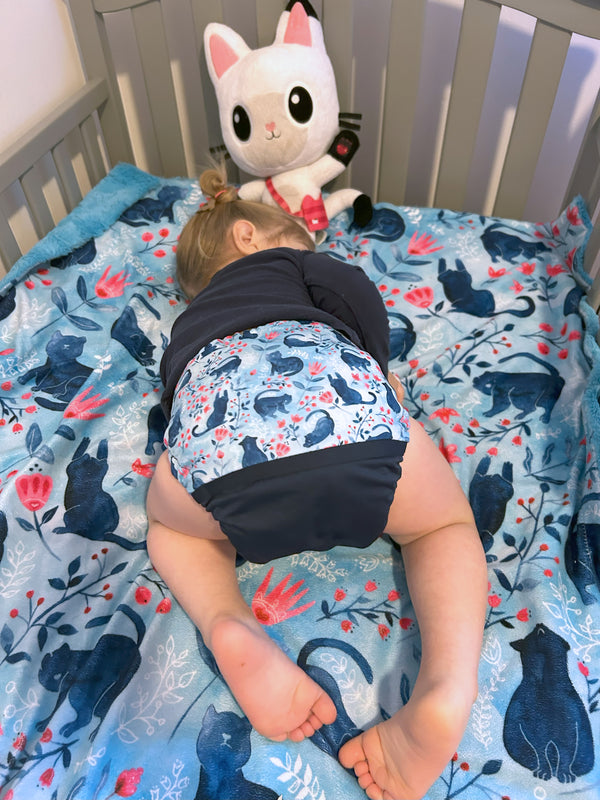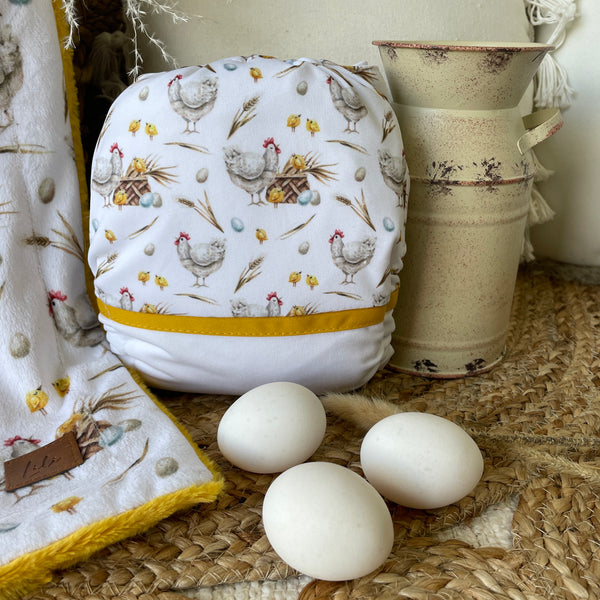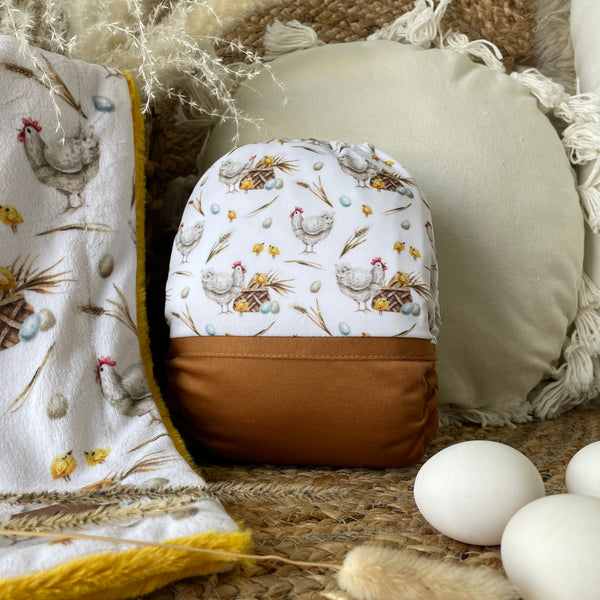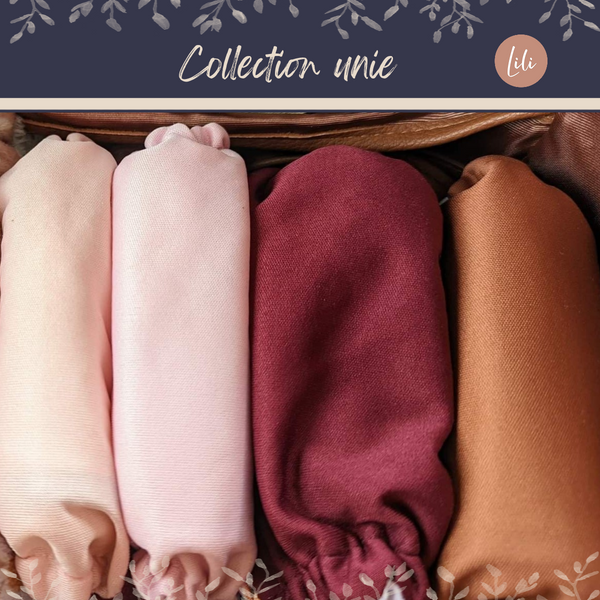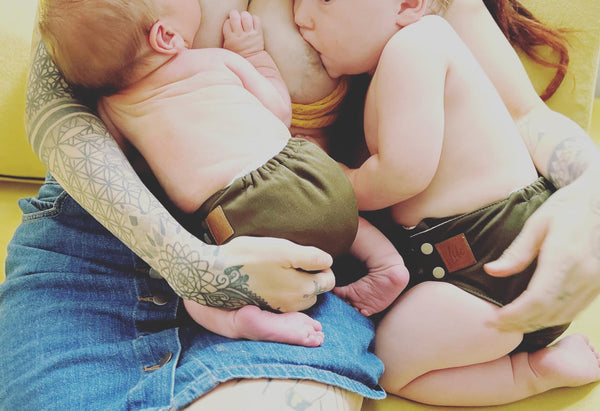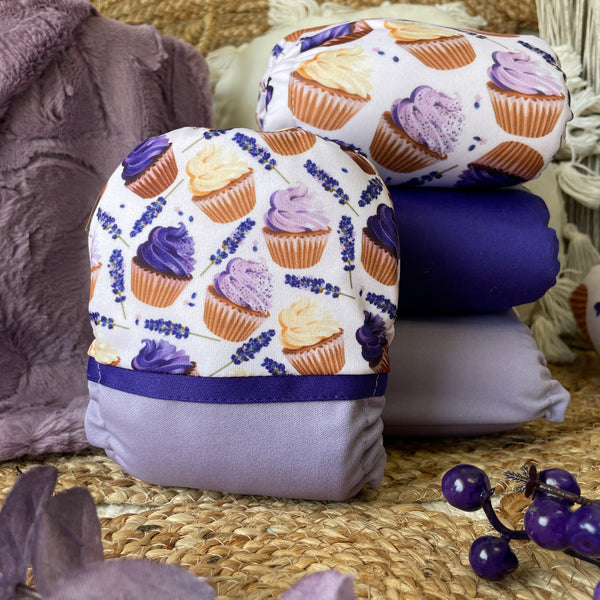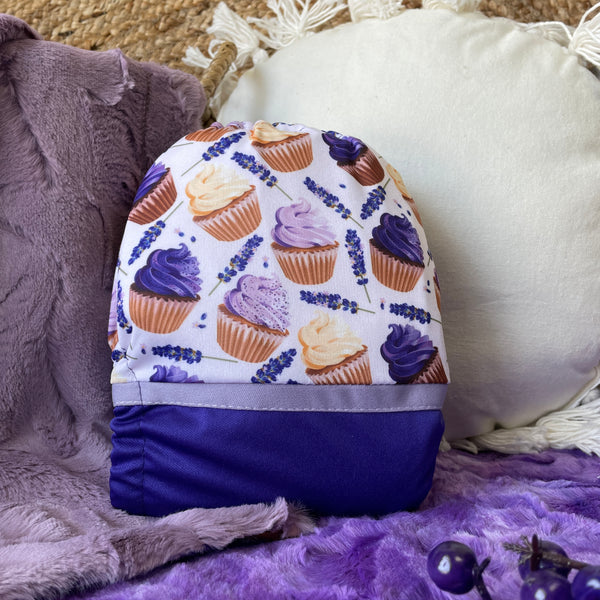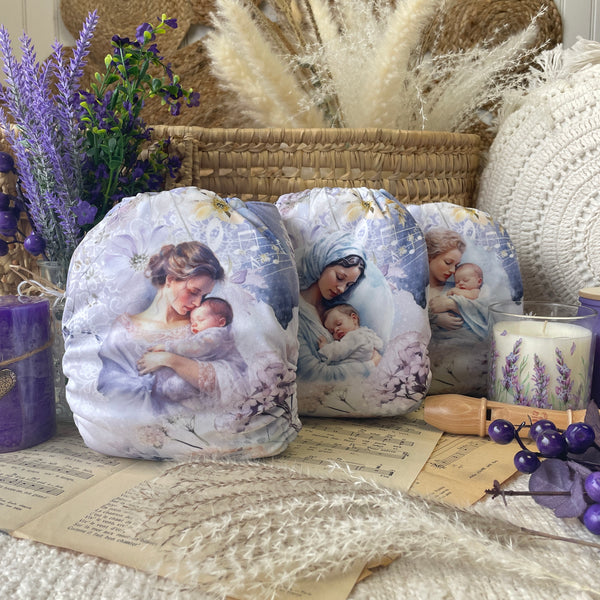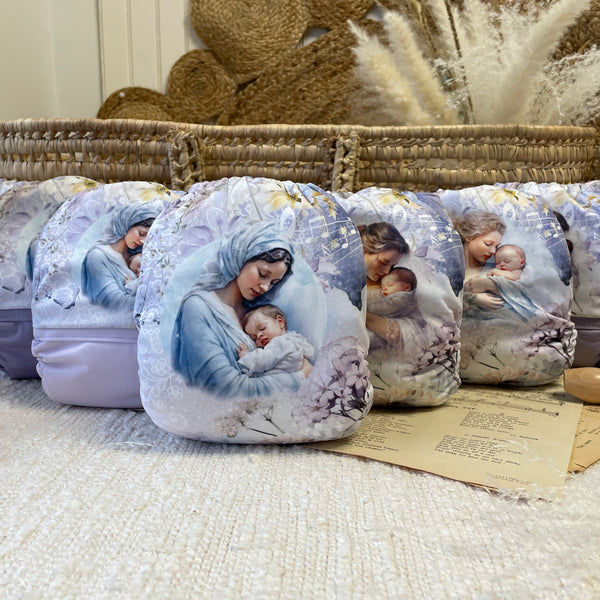Cloth Diaper One Size
(Save $9.99)
(Save $25.00)
How to choose a good one size washable diaper?
The benefits of washable diapers
They are ecological
Disposable diapers take a long time to break down. They consume a lot of water and detergent, and their production requires a lot of energy.
However, the washable version uses less water and detergent, requires less energy to produce, and takes less time to degrade.
They do not contain toxic substances for babies
There are health benefits for baby, not only because they don't contain potentially allergenic lotions or scented scents, but also because they're made from organic cotton (or organic cotton) or certified OEKO TEX, which means that they guarantee the absence of harmful substances.
However, there is still a slight risk of diaper rash or allergies caused by laundry detergent, but the majority of brands claim that they reduce these risks as well.
The most economical washable diapers
Finally, we cannot omit the economic aspect. At the time, it is expensive for the wallet. However, this expense still saves you a lot of money simply because you don't have to buy diaper packs regularly!
For comparison, an average of 4,500 diapers is needed for a child from birth to 3 years old if disposable diapers are purchased.
Cloth diaper One size or multi-size?
A one-size-fits-all diaper is a grow-on diaper designed for babies from birth to potty training. It adjusts with press studs located on the front of its cover. These buttons allow you to make three different sizes of diapers: small, medium and large.
How to use washable diapers?
After the various studies conducted on the composition of disposable diapers, many parents are looking to replace them with non-toxic products. In other cases, they do so for environmental or even economic reasons. Indeed, a baby uses about five to six diapers a day until the age of 3 years.
There are approximately 2,000 diapers per child per year, or 3.5 billion diapers thrown away each year in France. Enough to do damage, but also to parents' budgets.
Therefore, some people are considering or have chosen to use cloth diapers, but when you don't know anything about them, they can be a real headache.
TE1, TE2, what are the different types of washable diapers?
Gone are the days of wrapping babies in swaddled blankets and securing them with safety pins. Nowadays, they look a lot like bath nappies and are called "baby carriers".
They consist of an absorbent layer (the insert) and waterproof protective pants (to prevent excrement from escaping). Parents who wish to simplify their life can add a protective veil to the insert to collect the stool.
After use, simply throw them away. You can also use disposable inserts, depending on the brand, or you can use an all-in-one diaper. In any case, you will have to wash everything every time you change the baby. The other version is an all-in-two diaper, where the insert is attached to the underwear. This means that it can only be cleaned after two or three uses, so it is not practical to change the baby.
How many cloth diapers should I buy?
It all depends on how old your baby is and how many washers you have. If you buy them, you must provide the right amount of diapers for two days. For infants, for one wash per 24 hours, if you use a dryer, you can get 12 disposable diapers, and add two more if you don't have a dryer and the model you choose does not fit not.
If you want to use a machine every other day, you need 16 cloth diapers (18 without dryer) and 22 if you do it every three days (24 or 26 without dryer). For parents of twins or children who use diapers of the same size, it is necessary to count between 20 and 22 diapers per day (24 without dryer).
There are so many cloth diapers available today, both disposable and reusable, that you can easily afford them. But in the long run, parents win because they don't need to spend more money on disposables. However, when it comes to the youngest and wondering if they will be able to use all those nappies when they grow up, it is good to know that there are rental services available.
How is diaper washing done?
If you want to flush the contents of the dirty diaper down the toilet, throw the feces into the bowl, and remove a sheet if there is one. Then put the dirty diapers, not rinsed, in a bucket provided for this purpose. Today, most diapers must be stored "dry".
Each manufacturer recommends a specific procedure for washing diapers. However, in general, a first wash is done in cold water followed by a wash in hot or lukewarm water with an additional rinse.
Do not use the "sanitize" cycle, which may damage the velcro fasteners and elastic bands for either flat diapers or pocket diapers. Be especially careful if you have a front-loading washer. Because this type of washer uses little water, it can lead to residue issues. If so, make sure it uses as much water as possible.
You can dry the diaper in the dryer, however, this may shorten its life. It is recommended that PUL products be tumble dried occasionally to maintain their watertightness. When using the clothesline, place pins at the top and bottom of each layer to avoid stretching the rubber bands. If the diapers are too rough when dry, just tumble dry them for a few minutes to restore their softness.
When to start cloth diapers?
Can you put a washable diaper on a newborn?
It is certainly possible. Even from maternity, if possible. You can use most disposable diapers from 3 kg, that is to say from birth (except for small sizes or premature babies).
A full-term newborn, weighing about 3 kilograms, will be able to wear most types of cloth diapers from birth, including one-size-fits-all diapers.
Whether you're buying disposable diapers or washable diapers, be sure to check the minimum weight of each diaper before buying them.
Depending on the morphology, we can choose different models:
- Newborn diapers: These are specially designed for newborns, especially under 4 kg. They have a low belly, so they don't touch their navel as much as possible, unless the umbilical cord has fallen off or healed.
- Size washable nappies (XS, S, M, L): they are ideal for babies from 2 kg.
- Swaddling: this is the closest solution to baby's body, whatever its morphology. It will be very suitable for a very small baby.
And for those who are afraid of permanently staining their beautiful brand new diaper with meconium, rest assured, there is no risk even if this legend is eternal!
Is it absolutely necessary to start cloth diapers from birth, when returning from maternity?
It's important to start using cloth diapers when the baby is ready. For new parents, that means starting at birth.
Even if you are firm in your decision to use disposable diapers, there is no reason to start using them immediately after birth. Going out with baby is like using cloth diapers: it's easy once you get used to it, but it takes a while to feel comfortable. Don't worry too much if you're not sure where to start.
If umbilical cord care worries you for the first few days, don't worry too much; you can delay the adventure.
You may want to wait a few days after returning from vacation before buying diapers for your newborn. Small babies are generally easier to manage than large ones. Does he move around a lot? How does he sleep at night? Etc...
Leave the choice to you
You can keep a few disposable nappies on hand, especially in birth size: for young parents, fatigue is never far away. A backup solution may be welcome!
You now have everything there is to know about the one size washable diaper. However, if you have any additional questions, please do not hesitate to contact us . We will be happy to answer your questions and guide you to the product that best suits your situation.
Whether diaper accessories, bamboo diapers (better for the skin unlike cotton), pocket diapers, hemp or girl diapers, charcoal cloth diapers, absorbent cloth diapers, reusable diapers, diapers classics, purple diaper, eco-friendly diaper, reusable diaper, disposable diapers or any kind of absorbent diapers, we have the best in one size washable diaper.
Also discover our range of diaper inserts or diaper inserts . You will be convinced.








